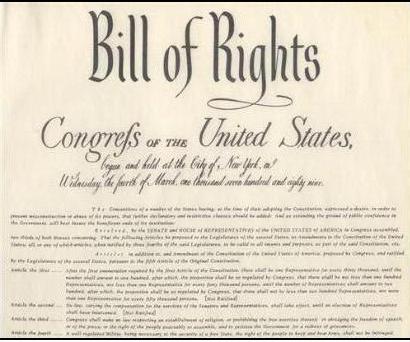At WiseGEEK, we're committed to delivering accurate, trustworthy information. Our expert-authored content is rigorously fact-checked and sourced from credible authorities. Discover how we uphold the highest standards in providing you with reliable knowledge.
What are State's Rights?
In the United States (US), state's rights are the political rights and powers the states have in regard to the federal government. State's rights are guaranteed in the Tenth Amendment to the US Constitution, which states that "the powers not delegated to the United States by the Constitution, nor prohibited by it to the States, are reserved to the States respectively, or to the people." The term also refers to the political argument that the constitution limits the powers of the federal government to those specifically listed in the constitution, and extends the powers of the states to cover all other areas.
The US Supreme Court first discussed the issue of state's rights in McCullough v. Maryland. This case came about when the federal government established a federal bank in Maryland, which was exempt from state taxes by law. Maryland attempted to enforce its state laws by taxing the bank. The Supreme Court ruled that federal laws generally override state laws; therefore, Maryland could not use its state laws to tax a bank that by federal law was tax-exempt. After this decision, legal arguments focused on the scope of state power, particularly whether states possess any powers to the exclusion of the federal government.

State's rights again came to the forefront during the US Civil War, in which several Southern states seceded from the US in 1861 and formed the Confederate States of America, in part due to conflicting views of state's rights. The Confederacy argued that each of its states possessed the right to pursue fleeing slaves into Northern states where slavery was outlawed in order to capture and return the slaves. Northern states argued that the Southern states' intrusion onto their territory in order to recapture fleeing slaves intruded on their state's rights to outlaw slavery within their boundaries.

In the years following the Civil War, the powers of states have gradually declined and the federal government has taken on an increasing role. The decline began with the passage of the Fourteenth Amendment, which applied procedural due process and most of the provisions of the Bill of Rights to the states. Specifically, the Seventeenth Amendment provided that individual voters, not states, would elect members to the US Senate, eliminating the states' direct role in forming the federal government. Expansion of laws surrounding the Commerce Clause gave the federal government the power to control most areas of national commerce, as well.
AS FEATURED ON:
AS FEATURED ON:













Discussion Comments
Tell me state rights during the 1820-1860 years and compare it to today. --David G.
Sunshine31- As a matter of fact there was a second ruling on the constitutionality of the case by Judge Roger Vinson, a federal judge out of Florida.
He ruled that the law was unconstitutional and violated the state’s rights.
He explained that congress exceeded its powers by trying to regulate interstate commerce. This has never happened in American history and there is a very good reason. It is unconstitutional.
When I think of state’s rights I remember the violation placed upon them by the Obama’s health care bill.
Twenty six states have signed on in a federal lawsuit to fight this law on the grounds of its unconstitutionality.
The Obama health care bill forces Americans to buy health insurance whether they want to or not or face financial penalties as well as incarceration.
The states argue that health insurance is a commercial enterprise that is regulated by the states under the Commerce clause of the 10th amendment. It is this very fact that makes this federal law unconstitutional.
Post your comments